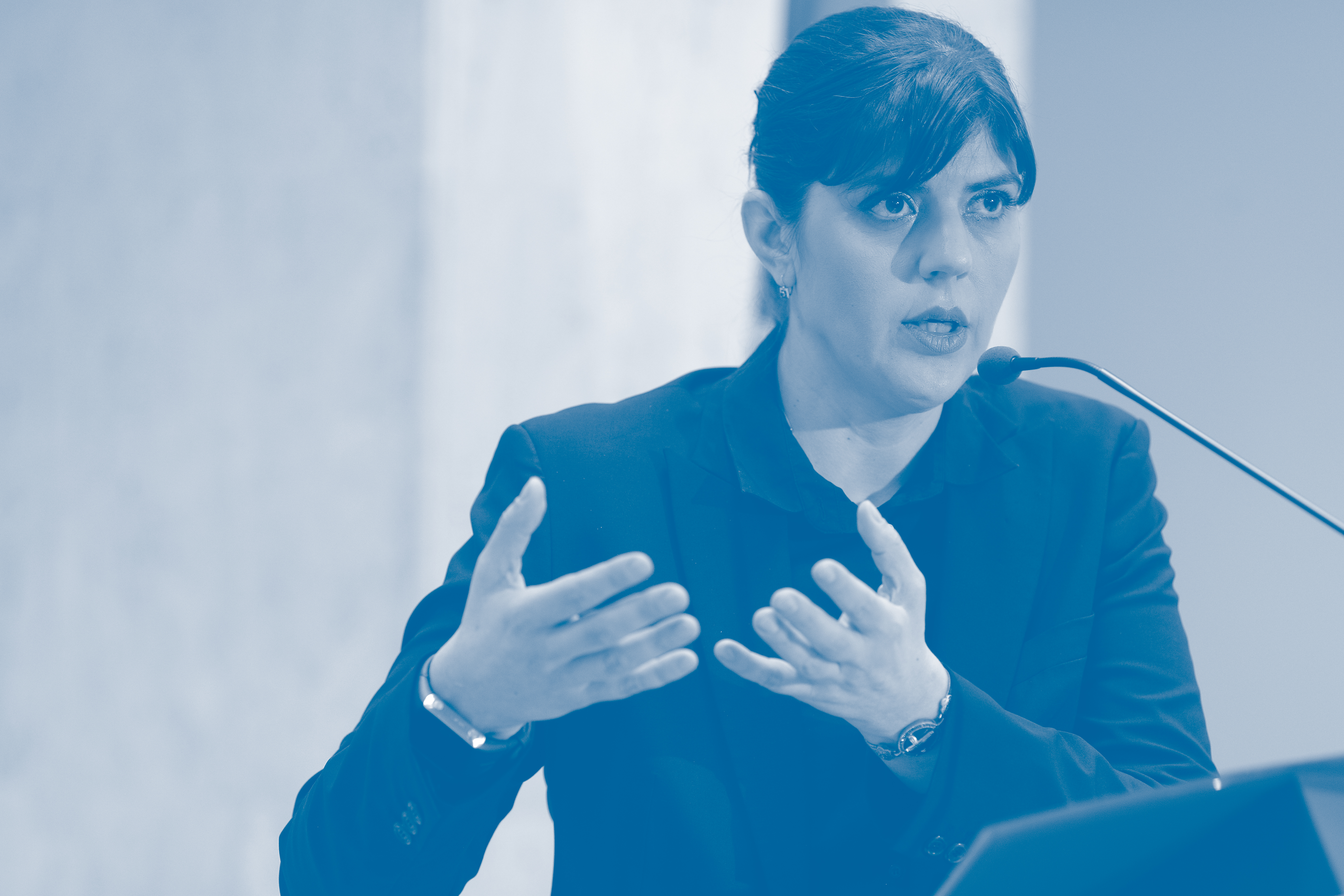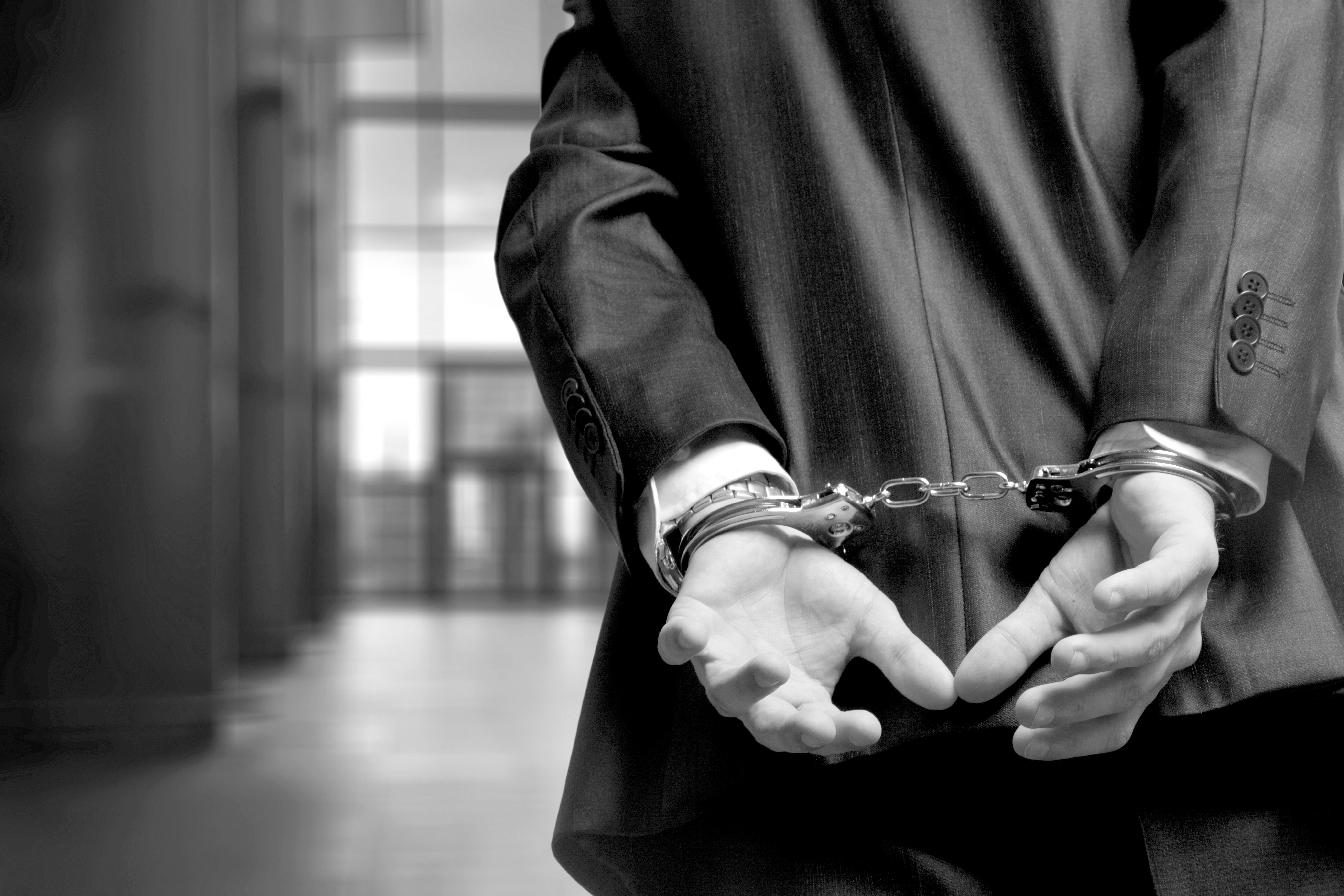By Sidonia Bogdan | Bucharest
Anti-graft efforts are a must for all EU states and Romania has achieved remarkable progress in its fight against this scourge. Nonetheless, it has been a bumpy ride and Romania can become a textbook example of how hard it can be to implement such a strategy at state level. Strengthening institutions, steadily promoting uncompromised magistrates in key positions, fighting back against political pressure on the judiciary and a keen eye for always respecting human rights are vital elements for the health of this process.
In 2007, Romania became an official member of the EU, and this brought along a boom of European investment meant to help the country catch up on fellow member-states in terms of economic development. Compared to the Western countries which were fortunate enough not to face the blows of totalitarian regimes, Romania’s economic transformation, as aided by the EU, looks spectacular.
A nation which in 1989 looked bleak and impoverished, eaten from the inside by organised corruption, and which went through an unhealthily long transition period, Romania swiftly gained the status of a Westernised country in its new quality as an EU member. Brussels, however, was not looking to continue to fund the country unconditionally, but took upon itself the task of implementing a long-term fight against high-level corruption. In return, Romania vowed to show Brussels that it intended to truly reform itself and that it would subject itself to the rule of law as a governing principle.
Twelve years on, the fight against corruption remains the country’s main debate topic, both internally and internationally. Aided by a Cooperation and Verification Mechanism (CVM) meant to track the progress of justice independence and the fight against graft, officials in Brussels used the annual report results as a filter in their interactions with Romania’s political class. When the CVM recorded a win in the anti-graft fight, Brussels leaders cheered on, while the attempts of Romanian political figures to dampen the judiciary’s anti-corruption zeal were swiftly and strongly sanctioned.
The first few years — starting with the mandate of Daniel Morar, the first reformist head of the DNA, and continuing with Laura Codruța Kovesi’s mandates — brought remarkable progress, with news of high-level Romanian officials receiving stiff prison sentences making the rounds of international media. However, something changed in late 2016, when the PSD-ALDE coalition won the country’s parliamentary elections, a step backwards that can be described as a slip in the direction of authoritarianism.
The above summary is a simplified narrative of Romania’s anti-corruption saga, one that most EU officials adhere to as a means of explaining the whole deal to the Union’s citizens in an easily understandable manner. A more nuanced look at Romania’s fight against corruption and testimonies by stakeholders will, however, reveal this narrative as extremely reductionist, if not outright harmful.
In the implementation process, the anti-corruption fight in Romania did not follow a linear trajectory and cannot be wrapped up as a binary endeavour, a ‘good versus evil’ story of justice-bearing heroes against venal villains.
Like any far-reaching national policy, once rolled out it could bring both breakthroughs and (correctible) mistakes. What follows is the author’s take on the whole process’ pros and cons.
Anti-corruption and pressure from Brussels
The CVM’s yearly reports, through which Brussels officials were able to offer informed opinions about progress in reforming the judiciary, had both positive and negative effects. On the one hand, Brussels managed to mobilise a sustained fight against corruption, and helped Romania to confront its issues instead of burying them. On the other hand, it created a form of pressure which also led to some collateral damage: some prosecutors fell into the trap of superficiality and haste when putting together several cases with huge political stakes.
In other words, when you work against the clock on a case to boost the figures of a CVM report, the odds are that you will make a slip here and there. Haste makes waste, including when you are defending a case.
Brussels requested judiciary reforms which were meant to eventually demolish organised corruption, although it never imposed quantitative goals. However, the National Anticorruption Directorate (DNA) headed by Kövesi also aimed to impress Brussels through the sheer number of cases that included high-profile Romanian officials.
DNA’s bottom line, which included impressive numbers of dignitaries investigated by the institution, always made a point of.
The resulting sloppiness could explain the acquittal of several high-profile politicians. The list of infamous cases includes names such as Romania’s former Prime Minister Victor Ponta (acquitted in a lower court); senate leader Călin Popescu Tăriceanu (ultimately acquitted of perjury); Ludovic Orban, the leader of the National Liberal Party (PNL) and a top opposition player (acquitted after being accused of influence-peddling for undue benefits); and Tiberiu Nițu, the chief prosecutor, who quit the Prosecutor-General’s Office after being investigated for complicity to abuse his office (case dismissed).
Moreover, a liberal politician and a former president of Romania’s Financial Supervisory Authority, Dan Radu Rușanu, was arrested during a criminal investigation, but was later acquitted in court. After that, Rușanu sued the state for damages for the period he spent under arrest (€1.4 million), most of which will go on his lawyers’ fees and the salary he should have gotten as Financial Supervisory Authority/ASF president during his five-year mandate, of which he only got to serve four months.
Kövesi’s institutional defence regarding weak cases emphasised that the DNA’s acquittal ratio was always under 10 percent, below the European average. This defence is flawed. When publicly announcing the criminal prosecution of a politician in power with high-level public leverage, one has a duty to build a very strong case, with high chances of ending in a court sentence. Failing to do so risks destabilising the directorate and drawing the label of politically motivated cases meant to push unwanted figures to the sidelines of public life.
This type of overreaction is far from unusual in Romania’s political class. The same pattern can be observed, for example, in the well-known case of US special counsel Robert Mueller’s investigation into Russian meddling into the 2016 presidential elections and potential collusion with the GOP campaign, which was constantly attacked and discredited by President Donald Trump and labelled as a partisan “witch hunt.”
In order to avoid the damage which similar accusations could cause, prosecutors handling such cases must work under maximum accountability.
An internal audit on prosecutors whose cases were invalidated in court came a few years late, in the spring of 2019, under the mandate of acting chief-prosecutor Călin Nistor, as Nistor himself mentioned during several TV appearances. The result? Several DNA prosecutors were posted to other offices across the country, offices that lack the competence of investigating high-level corruption
The question raised within the institution was: to what extent do prosecutors bear the blame for cases invalidated in court? When should a prosecutor who built a weak case be held accountable, and when not?
To mitigate similar situations going forward, the selection of prosecutors for Romania’s most powerful public prosecutor’s office must set the bar as high as possible.
Reform and legal idols

Laura Codruța Kovesi © Photo by Octav Ganea/ Inquam Photos
Another area in which Romania did not score well was the set of recommendations regarding the process of selecting the top prosecutors, including the DNA’s head prosecutor. These CVMissued recommendations have rarely been followed by Bucharest policymakers. Even the naming of Kövesi as chief DNA prosecutor was tainted by political agreements. The 2013 naming of Kövesi was possible due to an agreement between then-president Traian Băsescu and Victor Ponta, prime-minister at the time, the latter also serving as Acting-Minister of Justice. Kövesi was proposed for the DNA position while Tiberiu Nițu, whom the press depicted as a figure close to Ponta, was put forward to fill the general prosecutor spot that Kövesi was leaving vacant. Băsescu accepted both moves.
A judiciary system shows its independence when the most important roles are open to new people. There should be a constant stream of well-performing magistrates entering the key positions. However, in Romania, the general tendency is to rotate the same figures to the point when they seem to be untouchable. This was the case with Kövesi, whose aura left the impression that the institution could not perform without her.
The same thing happened with Daniel Morar, who served as the DNA’s chief prosecutor in 2005-2012. During his mandate, anti-corruption policies started showing tangible results.
But the goal should be to secure the position of the institution, and not to idealise its leaders. While the political scene is used to messianic figures, the judiciary would do well without them.
Another controversy that hit the public sphere, and which was also excessively instrumentalised by political figures indicted for corruption, was the collaboration between the DNA and the Romanian Intelligence Service (SRI). With the SRI benefitting from high-quality technology and agents trained in surveillance and telecommunications monitoring, the collaboration between the two institutions brought the DNA a record number of cases.
The secret cooperation protocols, declassified by SRI in June 2018, showed that the SRI and the prosecution bodies (including the National Anticorruption Directorate (DNA)) formed joint operative teams to investigate crimes related to national security and other serious crimes. But in February 2016, Romania’s Constitutional Court ruled such collaboration unconstitutional, prompting politicians to get their cases shut down on the basis that the evidence collected with the help of SRI officers had been obtained illegally. Nonetheless, up until the Court’s decision (and even afterwards), cases built up with the help of the SRI have been validated by many Romanian judges.
The issue in this case is not the collaboration itself between a prosecutor’s office and a secret service, but rather the ’lack of clarity in Romanian legislation. At the moment of writing, a SRI operative can still legally send informative memos to a prosecutor revealing potential criminal offences. However, the number of such briefings has waned due to the recent lack of political will to reinforce this collaboration.
As a side note, the SRI had its own infamous corruption case, with General Ovidiu Soare, a former head of the Economic Security Department, receiving a suspended sentence after trying to cover up corruption offences without notifying the judicial bodies. The DNA’s prosecutors accused him of not informing the judicial authorities that certain individuals were allegedly involved in criminal activities.
With this institutional collaboration effectively out of the picture, the DNA is currently forced to rely heavily on the help of the judicial police.
This raises a benchmarking issue, as there are no objective analyses that explain what would constitute a natural rhythm for the institution under these new terms.
Was the DNA working on steroids during the collaboration with the SRI? Why did the number of cases drop significantly after the collaboration stopped, and why can’t the directorate pick up the pace?
No Romanian stakeholder has yet objectively answered these questions, and the current political climate does not encourage such reformist actions.
Unfinished business
What’s more, Romania’s anti-corruption fight mostly involved criminal cases and the apprehension of alleged criminals, with little to no talk of prevention in public debates. The national anti-corruption strategy (2016-2020) includes a preventative element but, being a rather bland talking point, it could not impose itself in the public arena.
Criminal case files cannot solve all of society’s problems, especially since corruption is a deeply rooted issue in Romania. During the 45 years of the Communist regime, poverty made stealing from the state a common practice, indeed often a question of survival. How can one change such a mindset? Is retribution enough? Thinking in the longer term, the prosecution approach has proved insufficient.
How much politics can you fit in a judicial game?
To put it briefly, implementing anti-corruption measures required improvements and a course correction at the end of 2016, when the PSDled coalition won the parliamentary elections. The one-way, black-and-white narrative of the rule of law does not hold water anymore, at least not as much as it did when the whole process kicked off.
Certainly, the DNA has had its resounding victories: the rulings against ex-Prime Minister Adrian Năstase, media mogul Dan Voiculescu, ex-minister Dan Șova, the former chief prosecutor of the Directorate for Investigating Organised Crime and Terrorism (DIICOT) Alina Bica, and former minister Elena Udrea.
Unfortunately, many of the players that were slapped with definitive sentences later benefitted from Constitutional Court decisions. Constitutional Court judges stated that the manner in which Supreme Court five-judge panels were put together was illegal. Thus, although the lawsuits ended in definitive convictions, the cases had to be tried once more, from scratch. One little misguided interpretation by Supreme Court judges resulted in a catastrophic blow to the anti-graft fight.
Another great victory for the fight against corruption, however, was the case against the business tycoon Sorin Ovidiu Vântu, one of the most powerful people in Romania, who controlled a wide range of businesses and influenced local politics through his media group. His cases were handled by DIICOT prosecutors and the General Prosecutor’s Office, and all of them were validated by the courts.
However, the very high level of outside support, including the US embassy in Bucharest and all of the country’s European strategic partners, coupled with a lack of proper critical analysis, also led to sideslips. After a certain point, the politicisation of a judiciary is accompanied by collateral damage.
The ruling Social Democrat Party, through the voice of its leader Liviu Dragnea (who had already been given a suspended sentence in a case regarding the organisation of a referendum, and was once again under investigation in another case – for which he has just received a final ruling, sentencing him to jail), started coordinating parliamentary actions with the aim of altering all the laws related to corruption charges and the way the judiciary is organised.
Magistrates pushed back hard against the PSD-ALDE coalition’s attempts to weaken the judiciary. Seen from the outside, Dragnea’s actions have been seen as signs of political authoritarianism, and rightly so. In that current climate, the energy of society’s reformist arm was mainly focused on hindering Dragnea’s unjustified attempts to weaken the state’s criminal justice policies.
After two and a half years of Dragnea attacking the judiciary, desperately attempting to escape a sentence in the case against him, Supreme Court judges put an end to what had been deemed an authoritarian piece of Romanian history. In late May, Dragnea was handed a final three-and-a-half year prison sentence for abuse of office and illegal employment, and he is currently in jail.
Once this happened, PSD-ALDE’s repeated attacks on the judiciary seem to have stopped. The judiciary, however, is now tackling a different controversy. The political class currently in power is a supporter of a recently established special department in charge of investigating magistrates. This new department was met with harsh criticism by experts from both the Venice Commission and GRECO (the Group of States Against Corruption), which have insistently asked for the shelving of this body, depicting it as an intimidation instrument.
Disenchantment with the DNA
Nonetheless, this drift towards authoritarianism cannot be properly analysed without taking into consideration that the bigger picture also requires a cold, objective analysis of the DNA’s recent past.
This sort of analysis, which should take into account both its victories and flops, is nowhere to be found in Romanian political discourse, because the country’s most powerful prosecutor’s office has, on a rhetorical level, become the opposition’s main weapon to attack the ruling party.
The consequences? As opposed to any fair and open judicial analysis, such political clashes leave little room for holding oneself accountable for errors, because any step back turns into a sign of weakness which can immediately be attacked by a rival.
With politics heavily and dangerously infiltrated by populist stances in relation to the judiciary, the citizens are left unable to objectively separate between the two.
Meanwhile, the large part of the electorate which is inclined towards retribution needs to understand that judicial truth (and the way it holds itself together in a court of law) is not absolute, and neither does it reflect political or electoral truth. The mindset of a magistrate is completely different from that of a politician, regardless of whether they are promoters of the anti-corruption effort or not.
This is why the barrier between the judicial reforms one expects from a country and what that country’s judicial system can actually provide can narrow down to quite a fine line. A criminal case cannot replace the power of the individual to vote for political change.
In a mature democracy, the judiciary is free to fight high-level crimes, but at the same time it should also be held accountable and encouraged to minimise (as much as possible) the risk of missteps. Otherwise, the very same system that we support in fighting against corrupt politicians can slip towards authoritarianism.
The principles of the rule of law teach us that excesses of any kind are damaging, no matter which side they come from. In some cases, different stakeholders end up complementing each other in a fight between a deaf person and a blind one, which defeats the initial purpose. For this, Brussels would be more than welcome to act as an impartial mediator in the coming years. At the same time, a firm stand by EU officials is paramount when those holding political power seek to attack the independence of the judiciary and the rule of law.
SIDONIA BOGDAN is a freelance journalist based in Bucharest.


